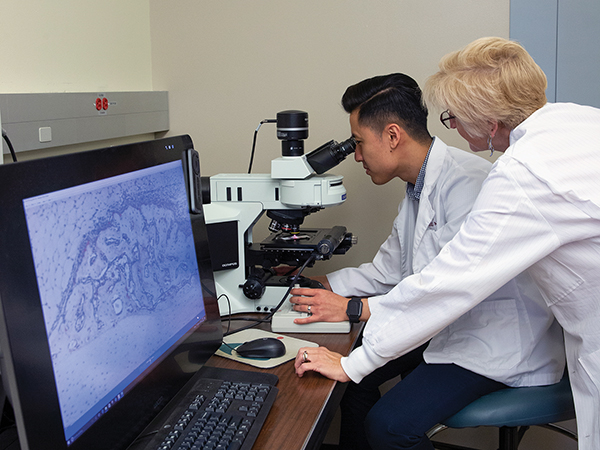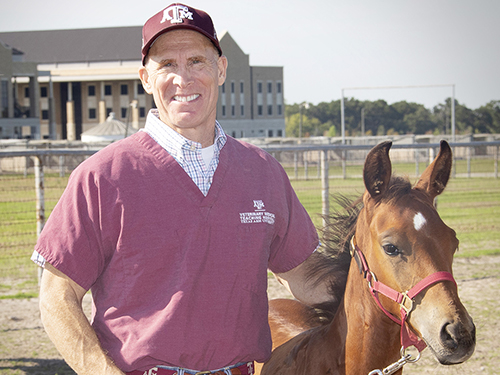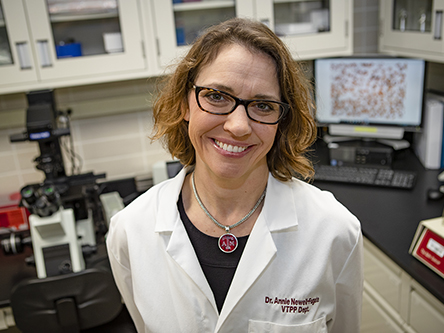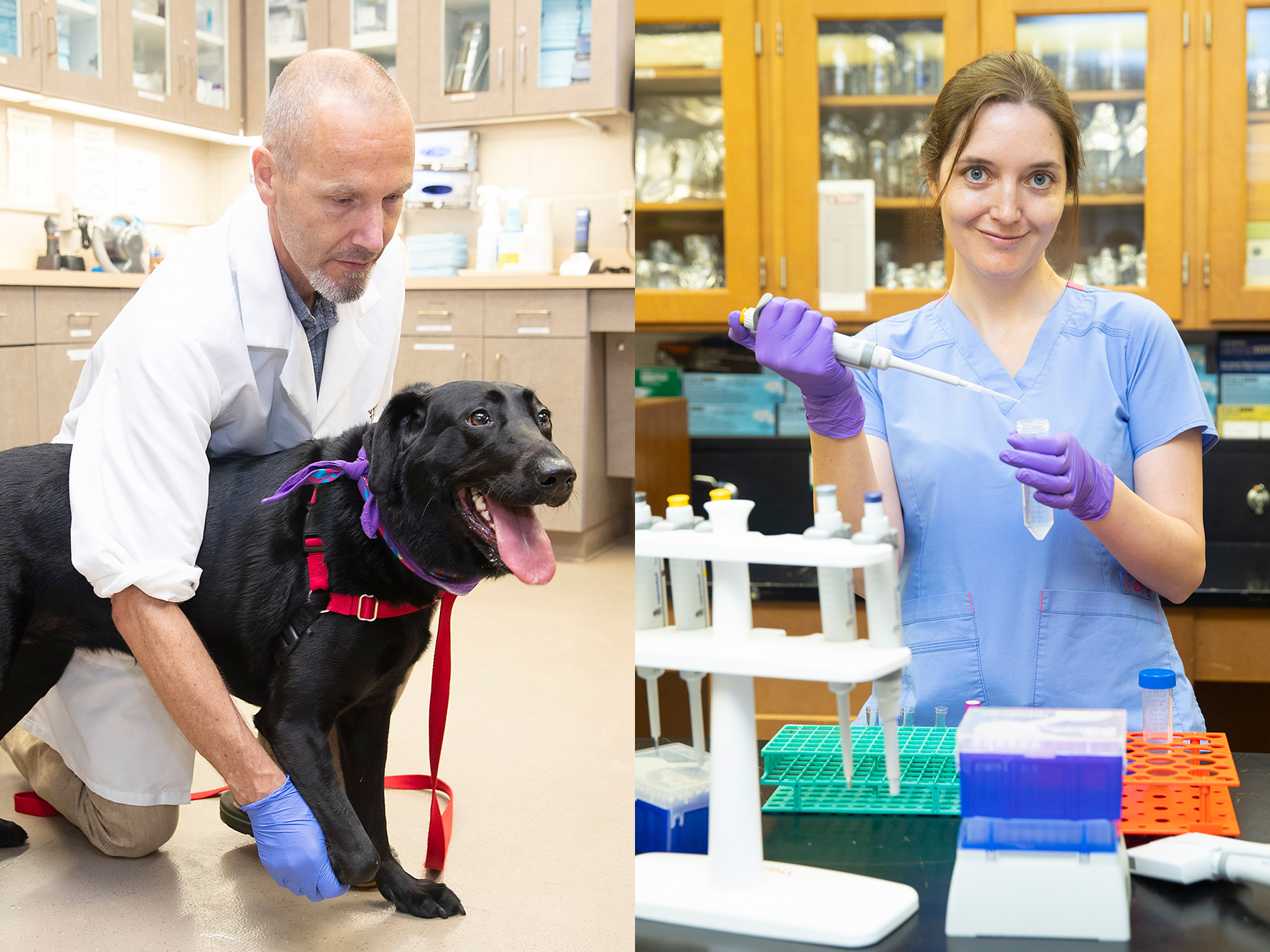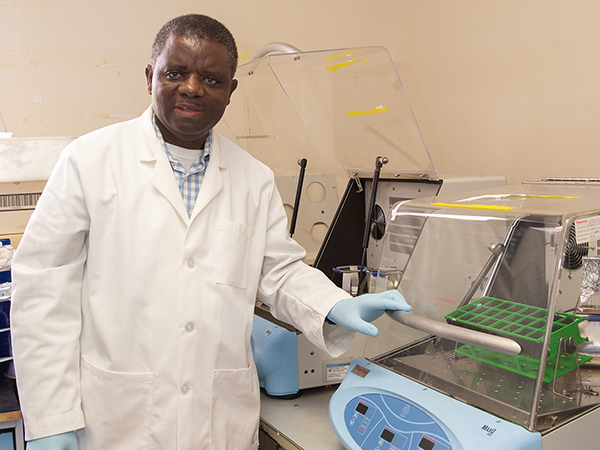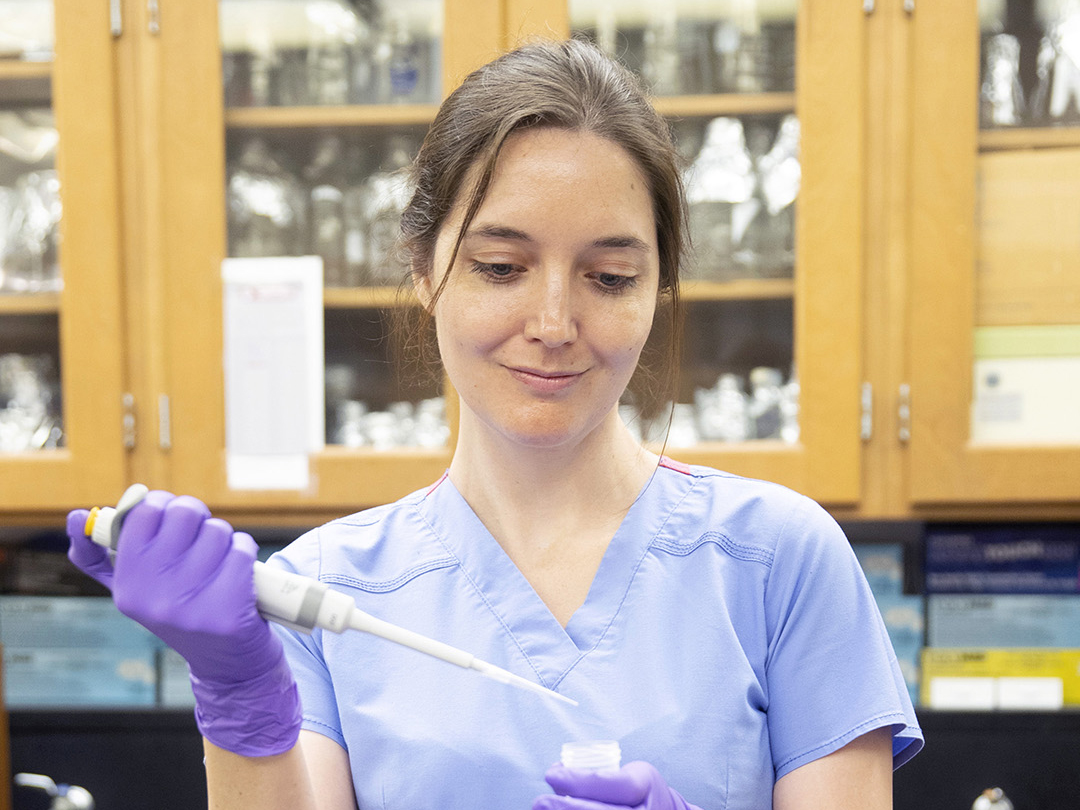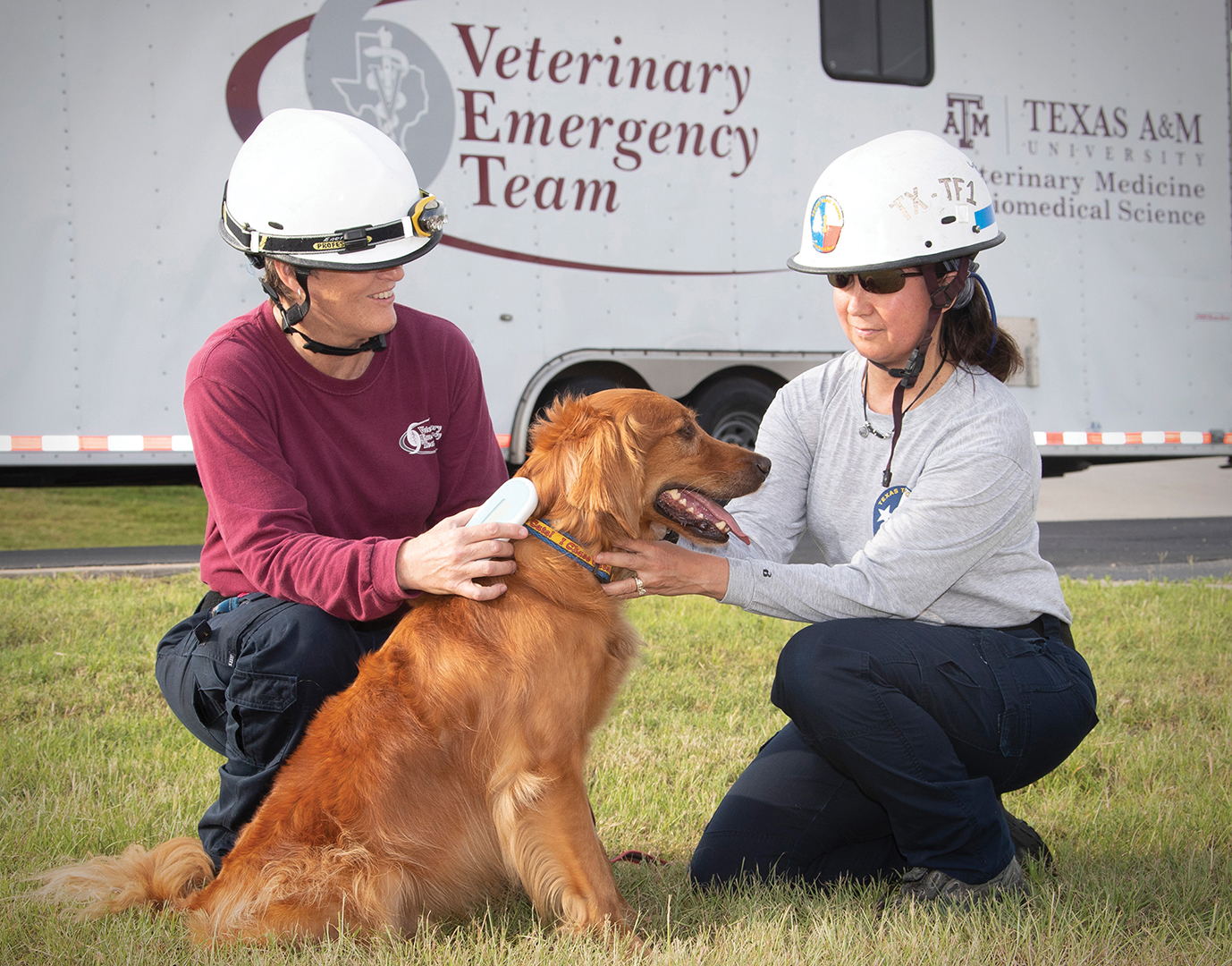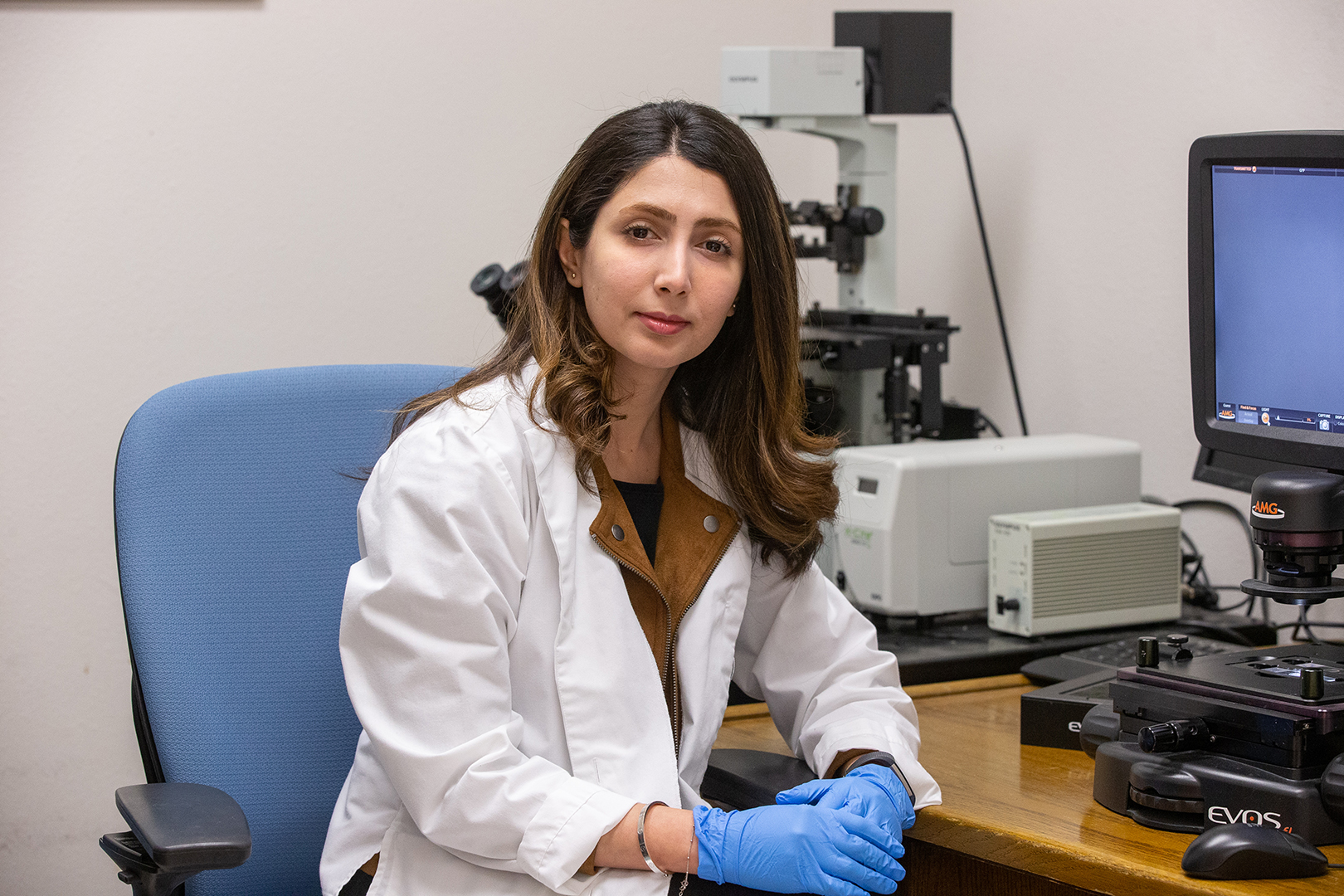Today’s Research, Tomorrow’s Cure
For Duc Nguyen, research is one of the most fascinating aspects of veterinary medicine. While he initially intended to be a child behavioral psychologist when he began studying psychology at the University of Houston, in the final year of his undergraduate degree, Nguyen suddenly realized that his true passion was for animals and veterinary medicine. […]
CVM Researcher Fights Antibiotic Resistance, Improves Foal Health
Dr. Noah Cohen, the Patsy Link Chair in Equine Research at the Texas A&M College of Veterinary Medicine & Biomedical Sciences (CVM), has identified an alternative treatment for foal pneumonia that avoids the use of often over-prescribed antibiotics. In research funded by the Morris Animal Foundation, Cohen and collaborators found that gallium maltolate (GaM), a […]
CVM Study Reveals Potential Health Benefits Of Coconut Oil
Many so-called “super-food” fads come and go before the scientific community has a chance to study them, but new research suggests that one recent trend—coconut oil—may mitigate the features of metabolic syndrome. Dr. Annie Newell-Fugate, an assistant professor in the Texas A&M College of Veterinary Medicine & Biomedical Sciences’ (CVM) Department of Veterinary Physiology and […]
CVM Faculty Members to Promote Canine Health with New Research Grants
Drs. Nick and Unity Jeffery, a husband-and-wife duo at the Texas A&M College of Veterinary Medicine & Biomedical Sciences (CVM), have received canine health research grants from the American Kennel Club’s (AKC) Canine Health Foundation (CHF). In celebration of its 25th anniversary, the AKC CHF awarded more than $2.1 million in 36 new canine health […]
CVM Researcher to Study Tick Vaccines in Brazil as Fulbright Recipient
Dr. Albert Mulenga, a professor in the Texas A&M College of Veterinary Medicine & Biomedical Sciences’ (CVM) Department of Veterinary Pathobiology (VTPB), will spend four months continuing his research on tick vaccines in Brazil thanks to a Fulbright award. The prestigious award will support Mulenga’s research abroad, during which he will work alongside researchers in […]
A Canine Connection
Through her Dogs Helping Dogs laboratory, Dr. Unity Jeffery studies common canine diseases to improve veterinary care in the future. If you ask for Dr. Jeffery at the Texas A&M College of Veterinary Medicine & Biomedical Sciences (CVM), you’ll need to be more specific. Dr. Nick Jeffery and Dr. Unity Jeffery are a husband-and-wife team […]
Texas A&M Research Examines Human, Canine Links Between Gliomas, Expanding Treatment, Research Possibilities
Researchers at the Texas A&M College of Veterinary Medicine & Biomedical Sciences (CVM) have been working for years to study the connection between canine and human gliomas. In the most thorough examination of canine gliomas to date, the team—working in collaboration with the Jackson Laboratory for Genomic Medicine in Farmington, Connecticut and the MD Anderson […]
Feeling the Heat
Dr. Deb Zoran uses her work with Texas A&M Task Force urban search and rescue dogs to study how different breeds have unique temperature ranges and how that impacts their ability to save lives. They are, perhaps, among the unsung heroes of the rescue world. The canine members of the Texas A&M Task Force (TX-TF) […]
Texas A&M CVM Researcher Identifies New Therapeutic Approach For Treating Rare Genetic Disorder
Dr. Mahsa Zarei, a clinical assistant professor at the Texas A&M College of Veterinary Medicine & Biomedical Sciences (CVM), has identified a new therapeutic approach to treating tuberous sclerosis complex (TSC), a rare multi-systemic genetic disease that can cause tumors and cancers. A complex genetic disorder, TSC is characterized by tumor growth in the brain, […]
New Study Shows Civil Unrest in Democratic Republic of Congo Worsening Ebola Outbreak
Civil unrest may have worsened the ongoing Ebola outbreak in the Democratic Republic of Congo (DRC), according to a new study on which Texas A&M College of Veterinary Medicine & Biomedical Sciences (CVM) researcher Dr. Martial Ndeffo is an author. Published in the Proceedings of the National Academy of Sciences of the United States of […]

